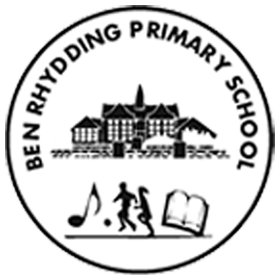Design and Technology at Ben Rhydding
Intent
Going forward, children at Ben Rhydding, will gradually build up a toolkit of skills that will encourage analytical thinking when planning, building, refining and evaluating a project in order to become effective problem solvers.
The staff have had access to the planning and resources developed by the D&T Association wealth to support delivery of each unit of work. The projects have been chosen to as part of a spiral curriculum that allows children at Ben Rhydding to revisit and develop skills. Every project follows a learning sequence that has a clear brief with real purpose, encouraging the children to evaluate and build on their learning over time. Formative evaluation throughout the sequence of learning and summative evaluation at the end of a project, will enable the children to regularly reflect and thus deepen their metacognitive learning and build resilience.
The children will also see their work in relation to the work of other innovators and designers in the wider world. We have used links between Ben Rhydding Primary school and the local feeder Secondary school, IGS, so that we are sending children with useful D&T skills and experience. We are also keen to use any parent experts to help children understand the relevance of DT in the wider world.
Implementation
Currently DT is taught by class teachers mostly through Topic lessons; often the topic is used as a vehicle to create a real life purpose for each project.
The D&T projects are taught in phases and often involve collaborative group work between year groups. Our learners are developing basic D&T skills while also developing communication and teamwork. Learning Galleries provide an opportunity for the children to exhibit their work; they can celebrate their own achievements and value the achievements of their peers.
Impact
D&T provides a vessel for creativity and innovation. Through the practical elements, there is an opportunity to build technical skills and develop the ability to draw detailed designs; these skills will be transferrable into other areas of the curriculum, will be useful in KS3 D&T and even going forward into the work place.
A clear sequence of work will give pupils the chance to self-critique as well as providing an opportunity to give and receive feedback as they evaluate their work against the success criteria of the brief.
Pupils are given the opportunity to practise collaboration, communication and teamwork as many of the projects involve working with peers.
Supporting SEND
Any Physical difficulties with the practical aspects of a task, are supported with specialised resources e.g. use specialised knives/scissors or by using an adult to scaffold
If children experience sensory difficulties as the classroom may feel crowded and overwhelming when two classes work together, then where possible, staff will offer breakout spaces. Staff are also sensitive towards food allergies and to other sensory triggers e.g. smells/ sounds.
Communication difficulties and literacy or processing difficulties are supported in a variety of ways that promote a communication friendly classroom. These include using Widgit visuals, task planners and non-formal ways of recording learning that do not rely on the writing.
What pupils think…
I like playing with my friends in DT because we work with our topic partners (Y1)
I do really like baking and cooking and it was fun to do some of those things at school (Y3)
I enjoyed all – I enjoyed it going through all the phases to make a book (Y5)
